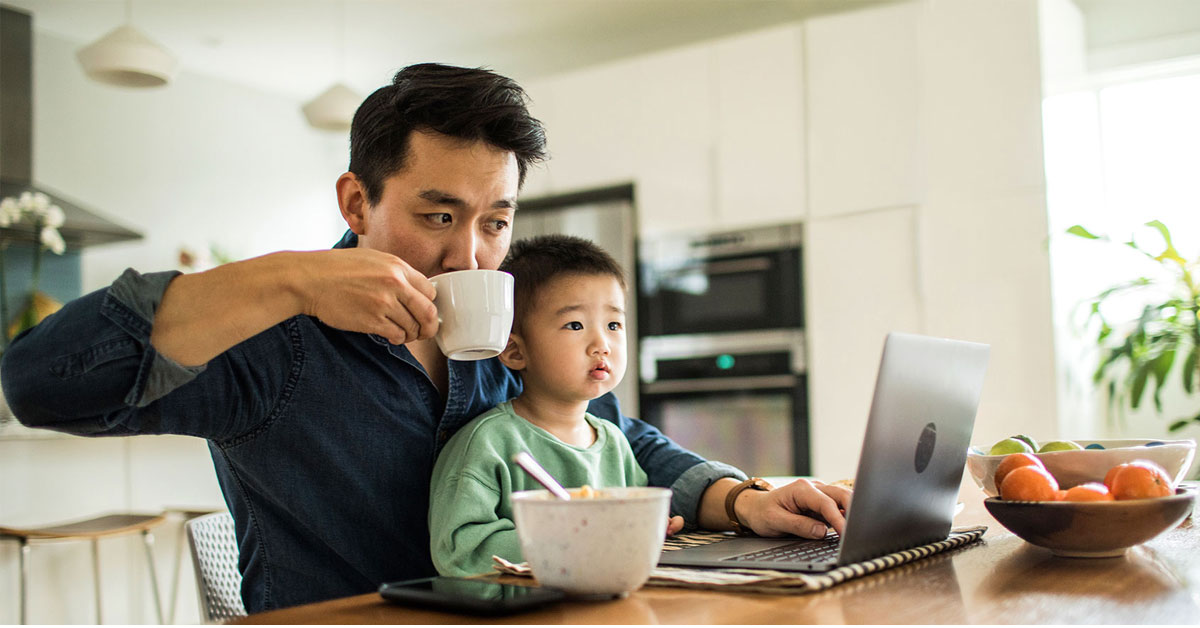Humans can adapt to almost anything.
Long ago, when our species first migrated to extremely cold environments, they ingeniously used the fur of animals and manipulated fire to keep warm.
More recently, when McDonald’s closed all of its stores in the country, Singaporeans ingeniously satiated their hunger for McNuggets by finding a brand of frozen nuggets that tastes almost exactly the same.
Yes, give us a problem, any problem, and we’ll find a way to deal with it.
Some Singaporeans More Productive Working from Home
While Singaporeans who are working from home are slowly becoming more productive, many are still stressed out by the change, according to a survey by employee engagement platform EngageRocket.
The survey included 20,000 respondents from 127 companies across various sectors, reported The Straits Times.
23% of respondents said in June that they were more productive telecommuting than when they worked in the office before the Covid-19 pandemic.
The other 77%, presumably, haven’t figured out a way to work from home without heading to their beds for a nap every forty minutes.

48.7% said their level of productivity has stayed the same, while only 28.8% said it has declined.
According to Leong Chee Tung, the co-founder and chief executive of EngageRocket, this finding shows that employees are successfully responding to the coronavirus crisis.
“Our study paints a remarkable picture of the resilience and adaptability of Singapore’s workers”, he said.
It’s not all good news, though.
68% of Parents in S’pore Working from Home Work More Hours Than They Did in the Office
If you live with a child who loves running around screaming, a dog who barks every time your child screams, and a younger sibling who laughs a little too loudly at TikTok videos on his phone, you might have already torn all your hair out while trying to work.
Many employees who are working from home are still facing numerous challenges that affects their efficiency.
Among these complaints were having space constraints at home or distractions from family members, as well as not having access to resources and tools available at the office.
This might explain why a staggering 68% of respondents said they are working longer hours than usual.
These disruptions can cause a high level of stress, which in turn can affect their productivity.
Workers from various sectors have reported increased stress levels, with those in the education industry hit the hardest.
chools and the shift to home-based learning.
However, 23% still reported unacceptable stress levels even after schools started opening.
40% of parents who are telecommuting also reported higher stress levels, because they have to juggle working from home and attending to their children’s home-based learning assignments.
This is one of the reasons many of them have had to work longer hours than usual.

Working From Home Still the Default
While Education Minister Lawrence Wong said the government is reviewing the telecommuting arrangement, working from home will remain the default for now.
“Sometimes the home environment is not so conducive and, perhaps, in the workplace when you are together with your colleagues, you can be more productive as well.”
“We’d still like to see as far as possible a high degree of people working from home,” Mr Wong said.
This way, there’ll be less congestion on public transport and in workplaces, something Singaporeans hated even before the pandemic.
That’s good news for those who enjoy taking naps every forty minutes, but not so good news for those who’ve had to deal with screaming kids and barking dogs while trying to work.



